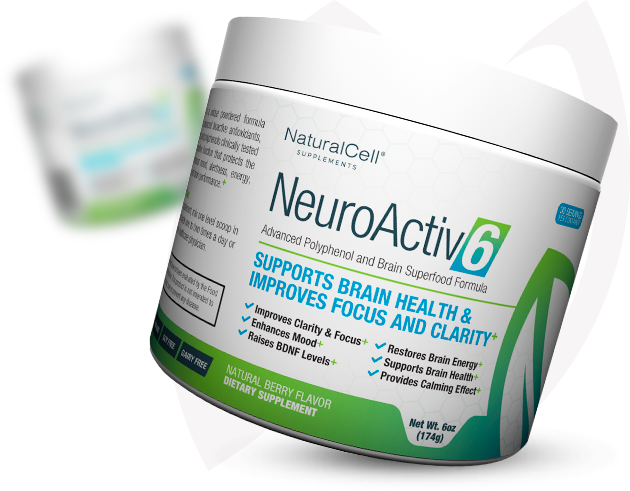In our fast-paced society, sleep is often overlooked in favor of productivity, late nights, and busy schedules. But the truth is, sleep plays a vital role in our physical, mental, and emotional health. Quality rest is not just about feeling refreshed in the morning; it’s crucial for everything from brain function to immune health. In this article, we’ll explore why sleep matters, what happens when we don’t get enough, and how prioritizing good sleep can drastically improve overall well-being.
1. Sleep and Brain Health
Good sleep is essential for optimal brain function. During sleep, the brain is busy processing information from the day, consolidating memories, and clearing out toxins that accumulate while we’re awake. This process, called the glymphatic system, is crucial for brain health and helps to prevent cognitive decline over time. Lack of quality sleep impairs concentration, memory, and decision-making and can lead to increased stress and mental fog.
- Tip: Establish a bedtime routine to signal to your brain that it’s time to wind down. Avoid screens and overstimulating activities right before bed to improve the quality of your sleep.
2. Strengthens Immune Function
Sleep is a critical factor in maintaining a robust immune system. During deep sleep, the body releases cytokines, proteins that help fight off infections and inflammation. People who don’t get enough quality sleep are more susceptible to colds, flu, and other illnesses. Chronic sleep deprivation can even lead to weakened immune responses, making the body less capable of defending itself against illnesses.
- Tip: Aim for 7-9 hours of sleep per night to support your immune system. A consistent sleep schedule can also help regulate your body’s internal clock, making it easier to fall asleep and wake up naturally.
3. Improves Heart Health
Quality sleep contributes to cardiovascular health. When we sleep, our heart rate and blood pressure naturally decrease, giving the heart and blood vessels a chance to rest and repair. Consistent poor sleep, on the other hand, has been linked to an increased risk of heart disease, high blood pressure, and stroke.
- Tip: To promote restful sleep, avoid caffeine and large meals late in the day. These can disrupt your body’s natural wind-down process, making it harder for your heart to rest at night.
4. Regulates Mood and Mental Health
Sleep and mental health are closely interconnected. Lack of sleep can lead to irritability, mood swings, and even symptoms of anxiety and depression. During sleep, particularly in REM (rapid eye movement) stages, our brains process emotions and stress. This is why poor sleep often leads to heightened emotional sensitivity and difficulty managing stress.
- Tip: Create a relaxing bedtime environment by dimming lights, using soothing scents like lavender, and keeping your room at a comfortable temperature. These simple changes can have a significant impact on your mood and sleep quality.
5. Aids in Weight Management
Sleep plays a crucial role in appetite regulation. Poor sleep disrupts the balance of ghrelin and leptin, two hormones that control hunger and satiety. When we don’t sleep enough, ghrelin (the hunger hormone) levels increase, while leptin (the hormone that signals fullness) decreases. This imbalance can lead to overeating, cravings, and weight gain over time.
- Tip: Prioritize sleep as part of a healthy weight management plan. Ensuring adequate rest can help prevent late-night snacking and improve your body’s natural hunger cues.
6. Boosts Physical Performance and Recovery
Athletes and fitness enthusiasts know the importance of sleep for physical recovery. Sleep helps repair muscles, replenish energy, and release growth hormones essential for building and maintaining muscle mass. Quality rest can lead to better endurance, faster reaction times, and improved athletic performance.
- Tip: If you exercise regularly, consider incorporating a short nap or extending your nighttime sleep to allow for better recovery. This can enhance your performance and reduce the risk of injury.
7. Supports Skin Health and Aging
Sleep has a direct impact on skin health. During deep sleep, the body produces collagen, a protein that helps keep skin firm, smooth, and hydrated. Lack of sleep can lead to increased signs of aging, including fine lines, wrinkles, and dark circles. Additionally, sleep reduces cortisol levels, which can lead to skin inflammation and aggravate conditions like acne, eczema, and psoriasis.
- Tip: Maintain a consistent sleep schedule to allow your skin the time it needs to repair and rejuvenate. Incorporating a good skincare routine before bed can also enhance your skin’s recovery process.
8. Enhances Emotional Resilience
Quality sleep allows the brain to regulate emotions and build resilience to stress. During REM sleep, the brain processes memories and emotions, helping you to better manage daily challenges. Individuals who get enough rest are more likely to be emotionally resilient, have better interpersonal relationships, and handle stress more effectively.
- Tip: Practice mindfulness or relaxation techniques before bed to help manage stress and prepare your mind for a restful night. Activities like meditation, deep breathing, or journaling can reduce pre-sleep anxiety and promote better emotional balance.
9. Supports Cognitive Function and Creativity
Sleep is a powerful tool for enhancing creativity and problem-solving skills. During sleep, the brain connects seemingly unrelated ideas and strengthens neural pathways, leading to greater insights and innovative thinking. Many people find that a good night’s sleep allows them to wake up with fresh perspectives and new ideas.
- Tip: For a cognitive boost, ensure you’re getting enough deep and REM sleep. Avoid stimulants and stressors close to bedtime to help your brain reach these crucial stages.
10. Promotes Longevity and Quality of Life
Good sleep is a key component of a healthy lifestyle and is linked to a longer lifespan. Chronic sleep deprivation has been associated with various health conditions, including heart disease, diabetes, and certain types of cancer. By prioritizing sleep, you’re investing in a healthier, more fulfilling life.
- Tip: Make sleep a priority, just as you would with exercise or a balanced diet. Setting a consistent bedtime and creating a calming evening routine can greatly impact your health in the long run.
Sleep Your Way to Better Health!
The importance of sleep to your overall health cannot be overstated. Quality rest is essential to your physical, mental, and emotional well-being. If you’re looking for an easy, natural way to support better sleep, consider incorporating Neuroactiv6 into your nighttime routine. With its combination of natural ingredients, it can help improve relaxation and quality of rest, so you can wake up each day feeling refreshed and ready to thrive. Remember, a good night’s sleep is one of the best investments you can make in your health!
TODAY’S DEAL
Unleash your mind's potential with NeuroActive!
Ready to improve your cognition? Add NeuroActive to your routine and boost your mental performance! Buy now and see the results!
learn more























